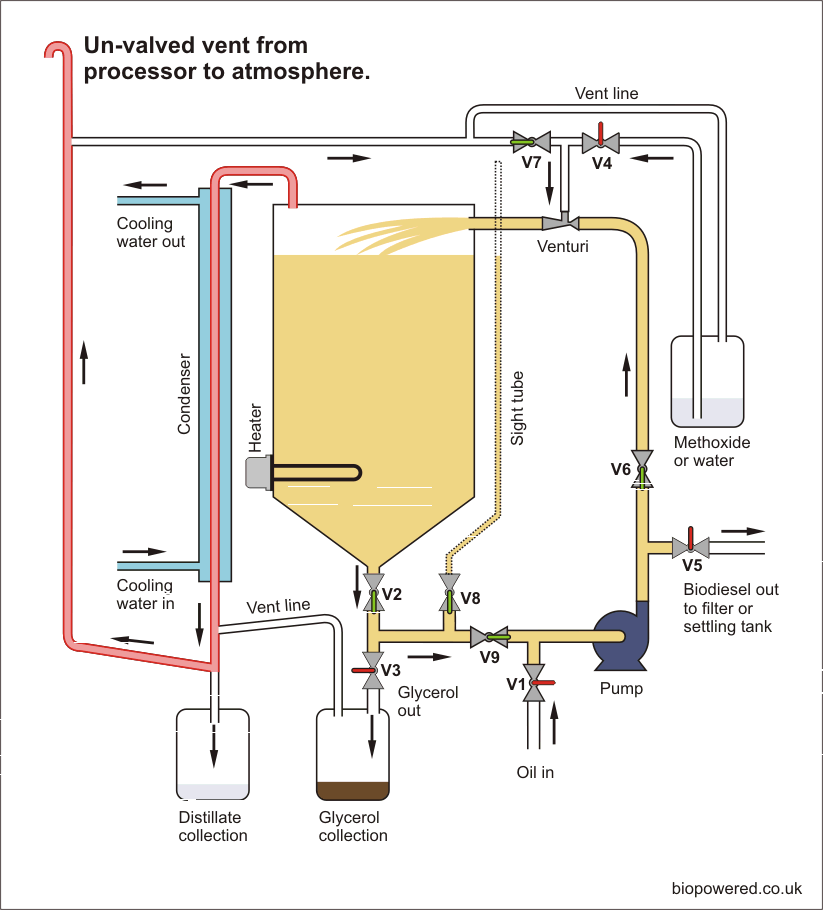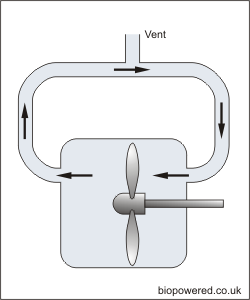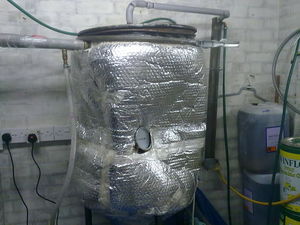Difference between revisions of "Importance of venting a processor"
Julesandtash (talk | contribs) (→Negative pressure) |
m (moved Importance of venting a processer to Importance of venting a processor: Speeling) |
(No difference)
| |
Revision as of 10:51, 2 February 2013
This page will soon be completed by Mark following an intensive and extensive wiki lesson.
Only if I was paying attention Julian.
Heh well done so far Mark - Tony :)
Thanks Tony.
looking good mark keep up the good work! :) weeeeeeeeeeee
funky kingston
Introduction
All processors shown in the pages must be vented to allow air to be displaced/replaced when oil/bio is added to or removed from the vessel.
It is important that the vent does not have a valve on it as it must stay open at all times.
The way the vent system works is the vapour is pulled out of the reactor by the venturi, through the condenser and back to the venturi.
So the vapour circulated around the system and is not under any pressure.
The vent on a GL is normally on the vapour line (highlighted in red) after the condenser, this way any methanol fumes that are released during the reaction,or in the de-meth stage, will get condensed off and collected in the Methanol collection vessel.
Only non flexible pipe should be used in the vent system.

Consequences
Negative pressure
If the vent becomes blocked it can produce a build up of positive or negative pressure.
This can have sever effects on the reactor itself.
Negative pressure can and will cause the reactor to implode as seen in these pictures.
- This is a steel, cone bottomed drum
These photos were supplied by Baseaddict. The reason his reactor imploded was he had used flexible hose for his vent, this got a small restriction in it and the negative pressure created when the bio was pumped out collapsed the vent pipe sealing the vent. This is why we advocate using non flexible pipe for the vents.
Positive pressure
The most likely way to produce positive pressure in a GL is by pumping oil into it with a closed vent, although in most cases it is unlikely the pump will produce enough pressure to cause a problem.
However if a reactor full of cold oil was heated with a closed vent this could build up a surprising amount of pressure.
It is possible the the reactor or pipework could rupture, but an explosion is highly unlikely in this scenario.



